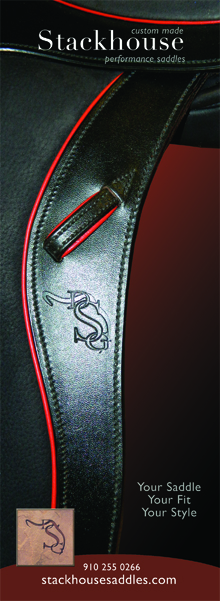Search the Site
Guest Blog # 110: "How Can I Gain My Horse's Trust?" by Bill Woods

Unequivocal, irrevocable trust is hard to earn and easy to lose. Once lost, it’s even harder to gain back. Having said that, we need to stop and define exactly what we’re looking for from our horses. I am the first to admit that, while I believe I relate well to the horses I work with, none of them are about to jump off the Steel Pier at Atlantic City with me nor am I about to go galloping (or even walking down the road) with them with no bridle or halter and lead rope for control. A few people can do that with their horses and more power to them, but that’s not particularly my interest, and I’m happily frying other fish.
First of all, recognize that horses are individuals with a great range of temperaments. What one horse will trustingly permit, another may think is the craziest, most threatening thing he’s ever seen. Before you can realistically expect your horse to believe in you, you have to make an accurate assessment of how he’s reacting or relating to the task or the situation you’ve put him in. Figure out how to think as he does.
Don’t read human emotions and rationality into his behaviors. He won’t trust you if what you’re asking isn’t worthy of trust.
The following may sound so obvious that it doesn’t need to be stated, but I can’t help myself: if you want your horse to trust you, don’t lie to him. You don’t need to try to buy his friendship with treats. Positive reinforcement is certainly a good thing. But in nature, horses scold each other. It’s OK to correct him, even punish him—if your action is immediate and appropriate. But if you intermittently punish him for a particular transgression while other times ignoring it or laughing about it, you won’t be making sense to him. Horses, more than almost anything, understand and appreciate consistency. Be clear, be consistent. He’ll respect you, and if you do it correctly, it won’t interfere with the relationship you’re trying to build.
Also, don’t surprise him! Picture an old hound dog snoring by the hearth on a rug. Sneak up and pull that rug out from under him a few times, and don’t expect him to find much comfort and solace there!
More than anything, this whole process requires patience. Not patience until you get impatient. Endless, eternal patience. (See comment on Consistency above).
Also, be aware that “trust” comes in many categories of behaviors. One is not necessarily transferable to the next. He may trust your hands around his ears; he may totally distrust you approaching him with a syringe. Or he may trust you with the syringe yet turn violent if it’s carried into his stall by The Hated Vet. Trust on the ground working around him, trust schooling him in hand won’t necessarily equate to trusting you if you want to canter to the Liverpool (or perhaps past the cows). Don’t be shocked by any of this. Lest you forget, he’s a horse!
When things break down, a good phrase to remember: “He didn’t do it on purpose.” Yes, there are exceptions—the bratty horse that does try to step on your foot—but in the main, horses do what they do, reacting many times instinctually and not having read the part that you are supposed to be the center of their universe. Get used to it. It makes being patient a lot easier!
And finally, I refer you to my favorite Uncle Ronnie line. As the Great Communicator warned us, “Trust but verify.” I love my horse to death, and I have great respect for many of the other ones I work with. But at one subsurface level I try always to be vigilant. I try to “read” my horse’s body language and anticipate how he’ll react and what he might do before he ever does it. This applies both on the ground and when I’m riding. Treating your horse this way makes it much more likely that your reactions to him will be . . . honest, consistent, and patient . . . which will feed right back into building the trust you want him to have in you.






